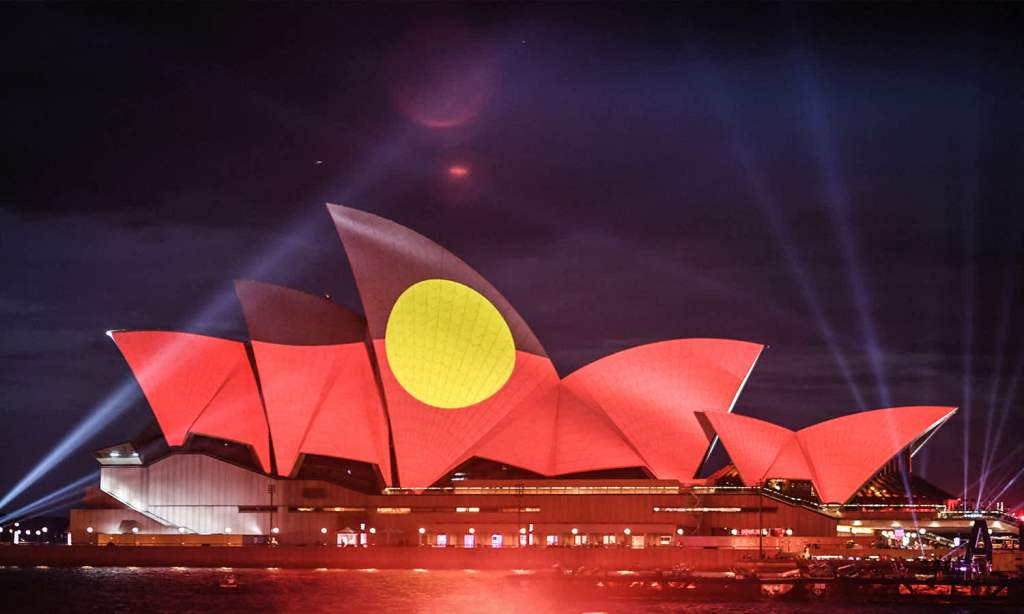Australia has just been through one of the biggest and most divisive arguments in recent times. The Voice to Parliament dominated headlines and conversations around the country for months and then, following the results of the vote and its defeat in October, it seemed to vanish without much further discussion.
In order to get a gauge on exactly what the hell just happened, the ANU Centre for Social Research and Methods and the School of Politics and International Relations tracked more than 4,200 voters from January until the end of October, after the vote on October 15th.
The results of their survey are eye-opening. The biggest finding is that the vote may well have passed if it were solely over constitutional recognition of Aboriginal and Torres Strait Islanders. 61.7% of people said that they would definitely or probably have voted for the change if it was separate from The Voice.
“Our findings show that there is widespread support for a broad definition of constitutional recognition,” said Professor Nicholas Biddle, co-author of the study.
In reality, only 39.94% of the voting public said Yes to the proposal on the table, which included both constitutional recognition of Aboriginal and Torres Strait Islander people as the first people of the nation we now call Australia as well as a Voice to Parliament.
The survey also found that, despite the massive No vote result, 87% of people agree that Indigenous people should have a say over matters that affect them. The result of the vote was not down to recognition of Indigenous people but rather The Voice model that was put to voters, Biddle said.
“What that says to me is that the principles [of the Voice] are still well supported, but that it was the mechanism and some of the specifics about the Voice model which people did not say Yes to,” Biddle said.
“Even among no voters, however, there was quite substantial levels of support for constitutional recognition with 40.8% saying they probably or definitely would vote yes,” the report reads.
Further findings in the survey show that Australia is proud of its First Nations’ cultures (79.1%), while 79.4% believe the government should do more to advance reconciliation.
Following the defeat of the The Voice referendum, a flagship policy of the Labor government, new ideas for addressing issues faced by Indigenous communities have yet to be decided upon.
Despite the defeat of the proposed Voice to Parliament, almost 9 in 10 voters think First Nations Australians should have a say over matters that affect their lives.
That’s one of the key findings in a major ANU study on the Voice. Read 🔽 https://t.co/j97sjRN13t
— ourANU (@ourANU) November 27, 2023
Labor received criticism during the referendum campaign for focusing on issues that were seen as less pressing than the current economic crisis that the country is in. They have said that decisions over how to proceed with Indigenous issues post-referendum will likely be made next year as they are now focusing on the cost of living.
80.5% of respondents believe that Australia should undertake some kind of “formal truth-telling” process to acknowledge the grim reality of this nation’s history with its Indigenous occupants. A truth-telling commission, referred to as ‘Truth’, is one of the three steps proposed by the Uluru Statement from the Heart, Voice and Treaty being the other two. With Voice voted down, it’s unclear if or how the others might be implemented.
Somewhat disturbingly, the survey also found that a slight majority of respondents (51.3%) believe that Aboriginal and Torres Strait Islander people could be “just as well off as non-Indigenous Australians” if they simply “tried harder.”
That said, even more people agree that structural-historical issues play a big factor in Indigenous attainment, with 68% saying they believe Indigenous people are disadvantaged at present by past race-based policies.
The division in the country was also laid bare in the survey results. Young people were far more likely to have voted Yes than older generations. In addition, the education divide was stark. Just 20% of people who had not completed year 12 voted Yes, while 60% of people who held a postgraduate degree voted the same.
Off the back of the referendum, there was a clear sense of anger and bitterness, especially amongst Aboriginal and Torres Strait Islander people. Indigenous leaders called for a week of silence following the vote in order to mourn and reflect on the outcome. Statements made in the wake of this put the result down to ignorance and racism.
“We are hearing that for many, the unfolding events of 14 October felt like an unparalleled act of racism by white Australia,” Australians for Native Title and Reconciliation (ANTAR) said.
Despite claims that Indigenous people didn’t want The Voice, voting patterns indicated that between 75 and 90% of Indigenous communities voted in favour.
“Given the result of the Referendum and the conduct of the ‘No’ campaign, there are now serious questions about whether reconciliation is still a viable strategy in Australia”, the Central Australian Aboriginal Congress said in a statement after the vote.
“Nevertheless, one thing remains certain: sooner or later the nation state must deal with the enduring fact of Aboriginal sovereignty.
“In the meantime, our struggle for equality, justice and self-determination will continue”.
Related: The 30-Year Success Story of Norway’s Indigenous Voice to Parliament
Related: Ahead of the Curve: South Australia Enacts Its Own Indigenous Voice to Parliament
Read more stories from The Latch and subscribe to our email newsletter.







